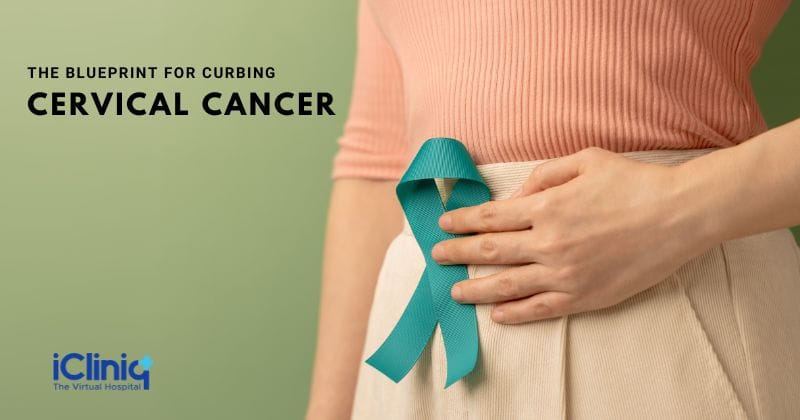The Blueprint for Curbing Cervical Cancer

Cervical cancer, being the most preventable form of cancer, surprisingly stands as the fourth most common cancer in women across the globe. A depressing add-on stat to this is that it also claims a significant number of lives every year! But why, when the defense gear from preventive vaccines to screening tests already exist? Putting it out loud and clear - Lack of awareness!
Here is a guide to bring down these scary stats close to nil.
1. Unlocking Prevention Through Vaccination
HPV (human papillomavirus) vaccine can guard against cervical cancer. Though it is recommended for females between the ages of 11 and 26, girls as young as nine years are good candidates. If you are over 26, getting advice from a healthcare practitioner before getting vaccinated is recommended. Because the chances are high that you are already exposed to HPV, and the benefits are less likely. However, it can definitely curb the risk of new HPV infections.
2. Shield up Right
Another chance to keep the cancer at bay is to make your protection game strong! Indulge in safe sexual practices and stay proactive. Condoms, in general, can prevent the transmission of HPV infections, thereby reducing the cervical cancer risk. But, there is always a loophole: if not worn properly, there is still a leeway for getting infected. Be mindful and leave the risk no chance.
3. Take Control Through Screenings
Cervical cancer and the risk of getting it can be ruled out if regular screening tests are done, say experts. These two tests top the "to do" chart for cervical cancer: A pap smear and a pap test. Along with helping identify any potential HPV infections, they can also rule out any changes that can lead to cervical cancer in the early stages. Every cervix owner should consider getting these starting at 20 years of age. With a fair share of understanding of cervical cancer risks and timely screenings, we can mitigate cervical cancer once and for all.
4. The Historic Steps
The global recommendation for a one-dose HPV vaccine schedule has notably shattered the barriers to expanding vaccination programs. Since then, several countries have switched to this schedule, and many countries are in the process of switching. This, to us, is a global win.
Government and non-government organizations, multilateral institutions, and donors have together pledged their unwavering commitment and fresh funding to save the lives of countless women across the globe by 2030. If the commitment meets its full potential, cervical cancer will be the first-ever cancer to be eliminated from the face of the earth.
In the wake of an unwavering resolute, the giant leap looks for a future free from the hold of cervical cancer. Together, let us contribute to saving hundreds of thousands of women's lives from the hold of a beatable adversary!





